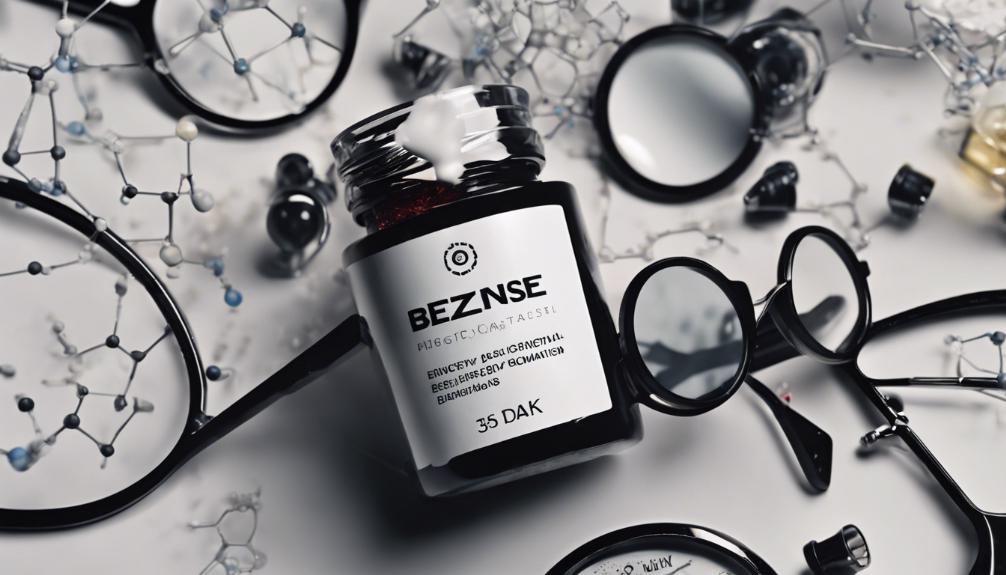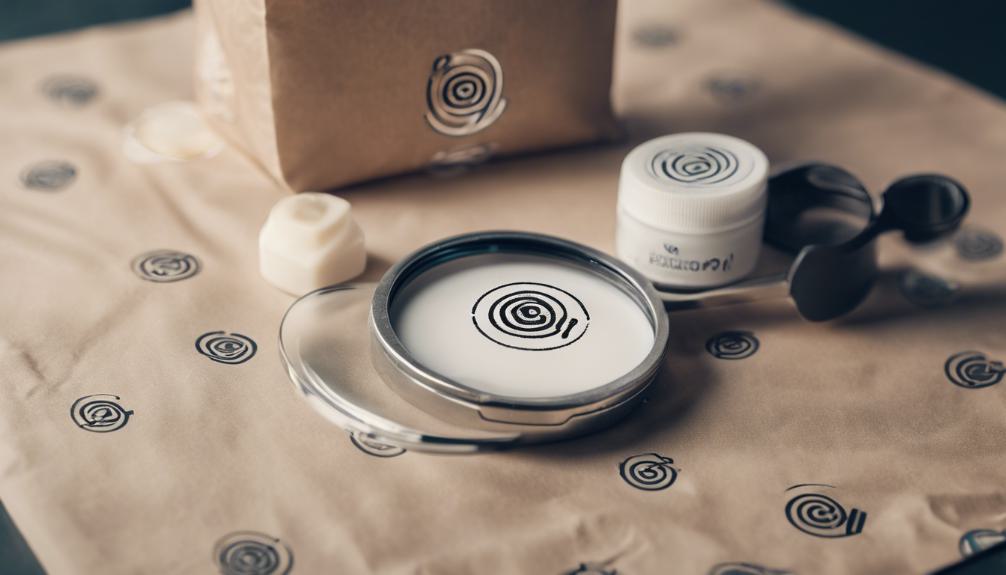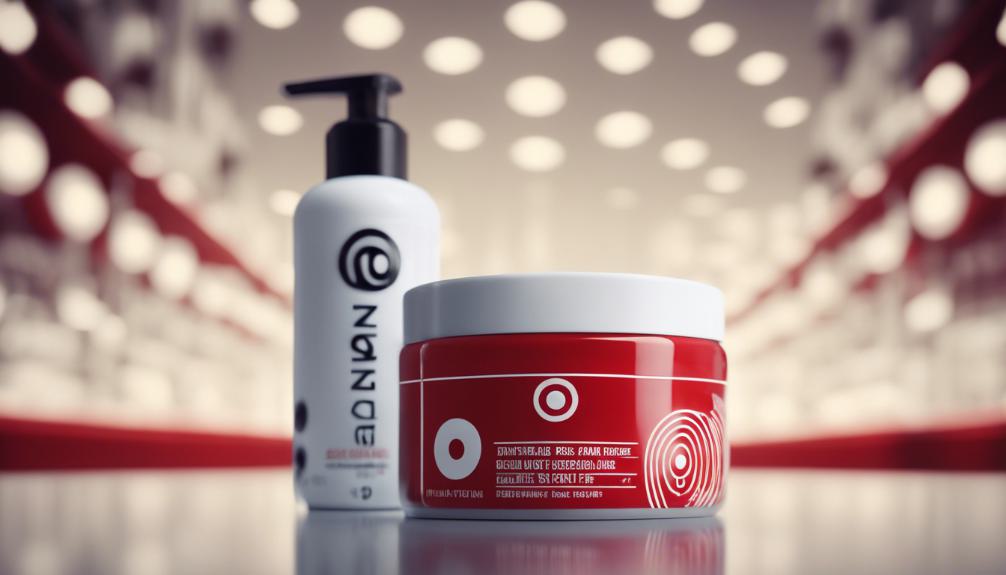Target's Acne Creams Hide Benzene Danger
The recent findings by Valisure, revealing alarming levels of benzene, a carcinogen, in Target's Up & Up brand acne treatments, heighten the discourse on consumer safety and corporate accountability. This revelation, indicating contamination not only in the product but also in its immediate environment, raises profound concerns over health risks and the adequacy of regulatory oversight. As legal battles unfold, with actions including a FDA Citizens Petition for a recall and a proposed class action lawsuit, one must ponder the implications for consumer trust and the measures necessary to safeguard public health. What lies ahead in this unfolding saga warrants close scrutiny.
Key Takeaways
- Target's benzoyl peroxide acne treatments were found to contain dangerous levels of benzene.
- Benzene, a known carcinogen, was detected even with product packaging closed.
- A lawsuit has been filed demanding a recall of the contaminated products.
- Consumers exposed to the benzene-laced acne treatments may have suffered financial and physical harm.
Benzene Contamination Discovery

How was benzene, a known carcinogen, detected in Target's Up & Up brand of benzoyl peroxide acne treatments, raising health and safety concerns? Independent laboratory testing conducted by Valisure discovered elevated levels of benzene in these acne treatment products. The presence of benzene, even when the product packaging remained sealed, indicated that the contaminant was capable of being released into the surrounding air, posing a potential risk to consumers. Further investigation revealed that certain batches of the acne treatments contained benzene concentrations exceeding 800 times the limit deemed acceptable by the Food and Drug Administration (FDA). This discovery underscored the critical importance of vigilant monitoring and regulation of consumer products to safeguard public health, particularly when it involves substances with well-documented risks such as benzene.
Legal Action Initiated

Following the discovery of benzene contamination in Target's Up & Up brand acne treatments, legal steps have been taken, including the filing of an FDA Citizens Petition by Valisure and a proposed class action lawsuit aimed at addressing the harm caused to consumers. These actions underscore the commitment to ensuring public safety and consumer rights. The FDA Citizens Petition by Valisure aims for a recall of the contaminated acne treatments, highlighting the urgency of removing potentially harmful products from the market. The class action lawsuit represents a collective effort to seek justice and compensation for those affected, reinforcing the principle that consumer health should never be compromised. These legal proceedings serve as critical measures in advocating for consumer safety and holding corporations accountable for their products.
Consumer Lawsuit Details

Numerous consumers have initiated legal action against Target, alleging that the retailer's Up & Up brand acne treatments contain unsafe levels of benzene, posing significant health risks. These legal complaints emphasize the potential danger benzene, a known carcinogen, presents to users, highlighting that the chemical's presence in skincare products is both alarming and unacceptable. The lawsuit seeks to hold Target accountable for allegedly failing to guarantee the safety and integrity of its products, demanding remedies for those who purchased the benzoyl peroxide acne treatments under the assumption they were safe. By bringing this issue to light, the legal action aims to not only secure compensation for affected consumers but also to enforce rigorous standards that protect public health and consumer trust in marketed products.
Joining the Class Action

Individuals who have purchased Target's Up & Up benzoyl peroxide acne treatments implicated in the benzene contamination issue may be eligible to join a proposed class action lawsuit without the need for immediate action on their part. This legal action signifies a collective effort to address the harm caused by the negligence in ensuring product safety. By participating in this class action, affected consumers can contribute to a larger movement that seeks accountability from corporations for the safety and well-being of their customers. It is a gesture not only of seeking justice for oneself but also of advocating for higher standards of product safety and integrity in the market. Those interested in joining the lawsuit are encouraged to stay informed on developments through reliable sources such as lawsuitlegit.com.
Additional Legal Options

Beyond the class action lawsuit against Target, consumers who have suffered adverse effects from products containing benzene, such as hair relaxers, may also explore additional legal avenues for compensation. Individuals impacted by benzene exposure from a variety of consumer goods have the right to seek justice and financial redress for their injuries. This could include filing individual lawsuits against manufacturers or retailers, focusing on personal injury or product liability claims. These legal actions can provide a pathway for affected consumers to receive compensation for medical expenses, lost wages, pain and suffering, and other damages caused by benzene-contaminated products. It is crucial for those affected to consult with legal professionals who specialize in toxic exposure cases to understand their rights and the best course of action.
About lawsuitlegit.com

For consumers exploring legal avenues related to benzene exposure, lawsuitlegit.com stands as a pivotal resource, offering expertise in various legal matters. With a mission dedicated to serving the public, lawsuitlegit.com provides up-to-date information, guidance, and access to potential legal recourse for individuals adversely affected by products and services. The platform, supported by a team of legal industry professionals including editors, designers, developers, and writers, aims to empower consumers with knowledge and tools to seek justice. Their thorough coverage extends to significant legal actions, investigations, and settlement opportunities, ensuring that those seeking to make informed decisions about their legal rights and options have a reliable source. lawsuitlegit.com's commitment to transparency and advocacy offers a beacon of support for those dealing with complex legal challenges.
Allegations Against Target

Target is currently facing a lawsuit for allegedly selling benzoyl peroxide acne treatments containing unsafe levels of benzene, posing financial and physical risks to consumers. The allegations have raised significant concern among individuals dedicated to serving and advocating for public health and safety. The lawsuit claims that Target was aware, or should have been aware, of the potential harm caused by the presence of benzene in its Up & Up brand acne products. This situation underscores the importance of vigilance in product safety and the need for corporate accountability. As the legal proceedings unfold, it is vital for those committed to consumer welfare to monitor the situation closely and support measures that protect public health from hazardous substances.
Frequently Asked Questions
How Does Benzene in Acne Treatments Compare to Benzene Exposure in Everyday Environments?**
Exposure to benzene in acne treatments, such as those identified in certain products, can greatly surpass everyday environmental levels of benzene exposure. Benzene, a known carcinogen, is typically encountered in trace amounts in urban air due to industrial emissions and vehicle exhaust. However, the detected levels in some acne treatments have been reported to exceed safe limits established by regulatory agencies, posing an elevated risk to consumers' health compared to their usual environmental exposure.
This Question Explores the Context of Benzene Exposure From Acne Treatments in Comparison to Common Environmental Sources, Providing a Broader Understanding of the Risk.
Exploring Pandora's box, the current question examines the risks of benzene exposure from acne treatments compared to common environmental sources. This investigation is essential for those dedicated to safeguarding public health. Recent findings have revealed the alarming levels of benzene in certain acne treatments, surpassing markedly the concentrations found in everyday environments. This revelation underscores the importance of vigilance and informed decision-making in product selection to protect consumer well-being.
Can Using Affected Acne Products Lead to Immediate Health Symptoms?**
Using acne products contaminated with benzene may not always lead to immediate health symptoms. Benzene exposure, particularly at low levels or over a short period, might not manifest in acute symptoms immediately. However, prolonged or significant exposure increases the risk of developing serious health issues, including certain forms of cancer. It is important for consumers to be aware of the potential risks and consult healthcare professionals if they have concerns about exposure.
This Inquiry Delves Into Whether Symptoms or Health Effects Can Manifest Shortly After Using the Benzene-Contaminated Acne Treatments, Shedding Light on Immediate Health Concerns.
Analyzing the immediate health implications of using benzene-contaminated acne treatments, it's essential to highlight that a stability study identified some products forming benzene concentrations over 800 times the FDA's limit. This statistic underscores the potential for acute exposure risks. For individuals committed to safeguarding their well-being and that of others, understanding these risks is paramount. Immediate symptoms may not always be evident, emphasizing the importance of informed choices in product usage.
What Are the Long-Term Health Effects of Repeated Benzene Exposure Through Skincare Products?**
Long-term exposure to benzene, a known carcinogen found in some skincare products, can have severe health implications. Chronic exposure may increase the risk of developing leukemia and other blood disorders, according to research. Additionally, long-term benzene exposure can lead to bone marrow suppression, potentially causing anemia and weakening the immune system. It's imperative for consumers to be aware of the ingredients and safety of their skincare products to mitigate these risks.
Conclusion
In the shadow of innovative healthcare advancements lies the unsettling revelation of benzene contamination in Target's Up & Up benzoyl peroxide acne treatments. This juxtaposition highlights a pressing need for rigorous oversight and accountability within the consumer goods sector. Legal endeavors, including a FDA Citizens Petition and a proposed class action lawsuit, underscore the gravity of corporate responsibility in safeguarding public health. The situation calls for immediate action to rectify these lapses, reinforcing the imperative of consumer safety in product manufacturing and distribution.

This post has been generated by AI and was not reviewed by editors. This is Not legal advice. Please consult with an attorney.
